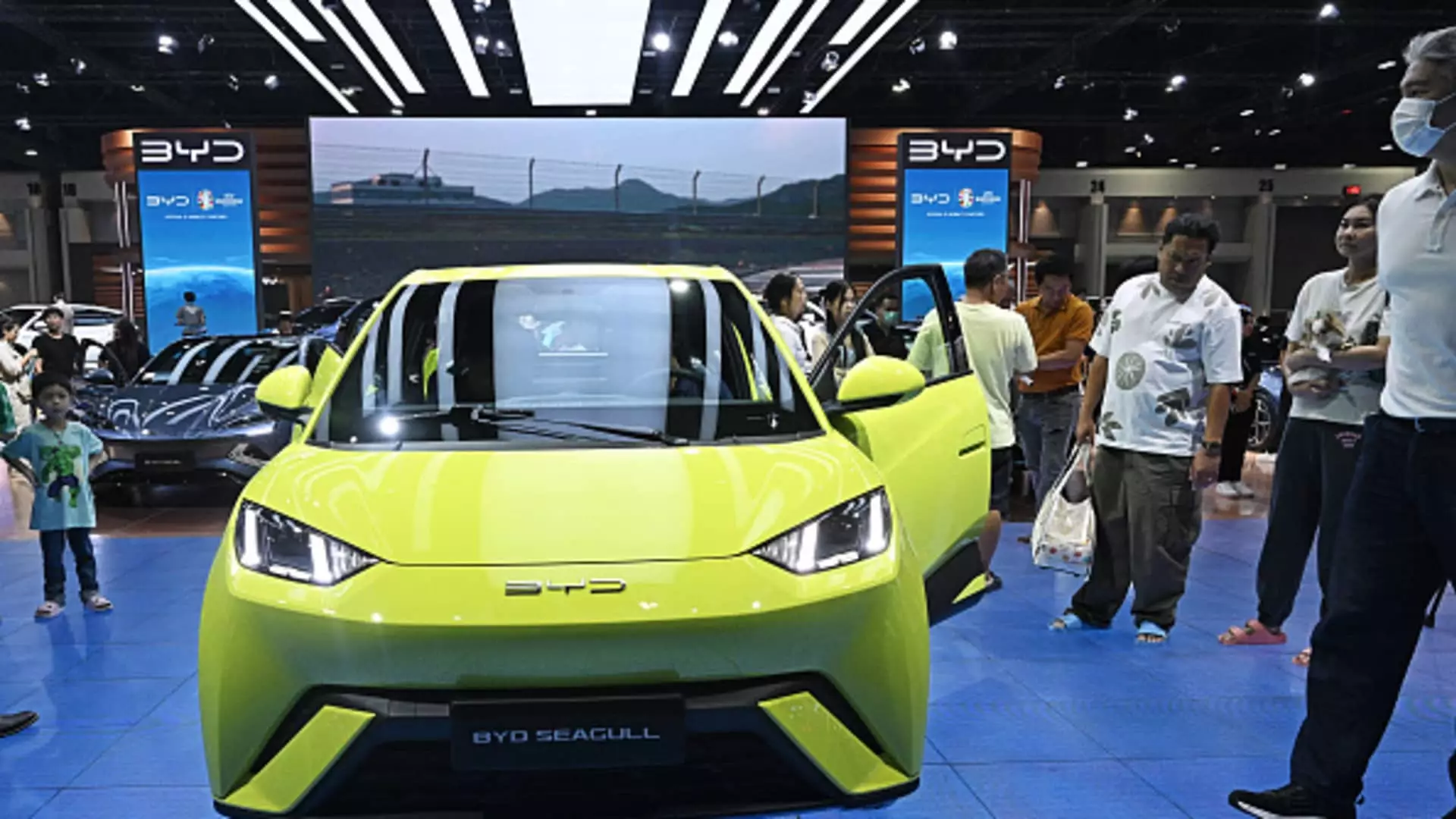The European Union is making strides to reveal its tariff rate plan for Chinese electric vehicles this week, in an effort to combat low-priced, subsidized imports. The EU currently imposes a standard 10% duty on imported EVs; however, this rate is expected to increase for Chinese EVs starting July 4th. There are varying predictions regarding the extent of this tariff hike, with some analysts suggesting a significant increase could be on the horizon.
Potential Tariff Rates
Citi analysts have speculated that the tariff rate for Chinese electric vehicles could surge to around 25-30% from the current 10%, and there is a risk scenario where the rate could reach 30-50%. On the other hand, some industry experts such as Anthony Sassine from KraneShares foresee the tariff rates falling between 10% and 20%, but potentially pushing towards the higher end of that range following the recent European Parliament elections.
The European Commission initiated an investigation last October into the subsidies provided to EV manufacturers in China, citing concerns that these subsidized imports posed a threat to the EU’s electric vehicle industry. Ursula von der Leyen, president of the European Commission, emphasized the need for a “de-risking” approach in dealing with Beijing, indicating a tough stance on trade relations.
While the impending tariffs may signal a crackdown on Chinese electric vehicle imports, some experts believe that the efficiency and advancement of Chinese manufacturers could mitigate the impact of these tariffs. Sassine highlighted that Chinese manufacturers are incredibly efficient and technologically advanced, making their products more competitive than their EU counterparts even with increased tariffs.
China’s electric vehicle industry has flourished due to incentives and government support, prompting concerns of overcapacity in the U.S. and Europe. The U.S. Energy Secretary and the Biden administration have previously voiced apprehensions about Chinese EVs flooding their markets, leading to the imposition of hefty tariffs. Turkey also announced plans to impose additional tariffs on Chinese vehicle imports, reflecting a global trend of protecting domestic industries.
Chinese EV manufacturers, such as Xpeng, BYD, and Nio, have been actively expanding their presence in Europe despite the ongoing EU probe. These companies have showcased their models, established joint ventures, and even set up factories in European countries. The strategy of setting up local manufacturing facilities in Europe appears to be a preemptive measure to avoid or mitigate the impact of tariffs.
The European Union’s decision to revise tariff rates for Chinese electric vehicles reflects a broader trend of countries safeguarding their domestic industries against subsidized imports. While the exact extent of the tariff increase remains uncertain, it is clear that Chinese manufacturers are proactively seeking ways to navigate these challenges, including setting up production facilities in Europe. The impact of these tariffs on the competitiveness of Chinese EVs in the European market will likely depend on the resilience and adaptability of these manufacturers.


Leave a Reply
You must be logged in to post a comment.